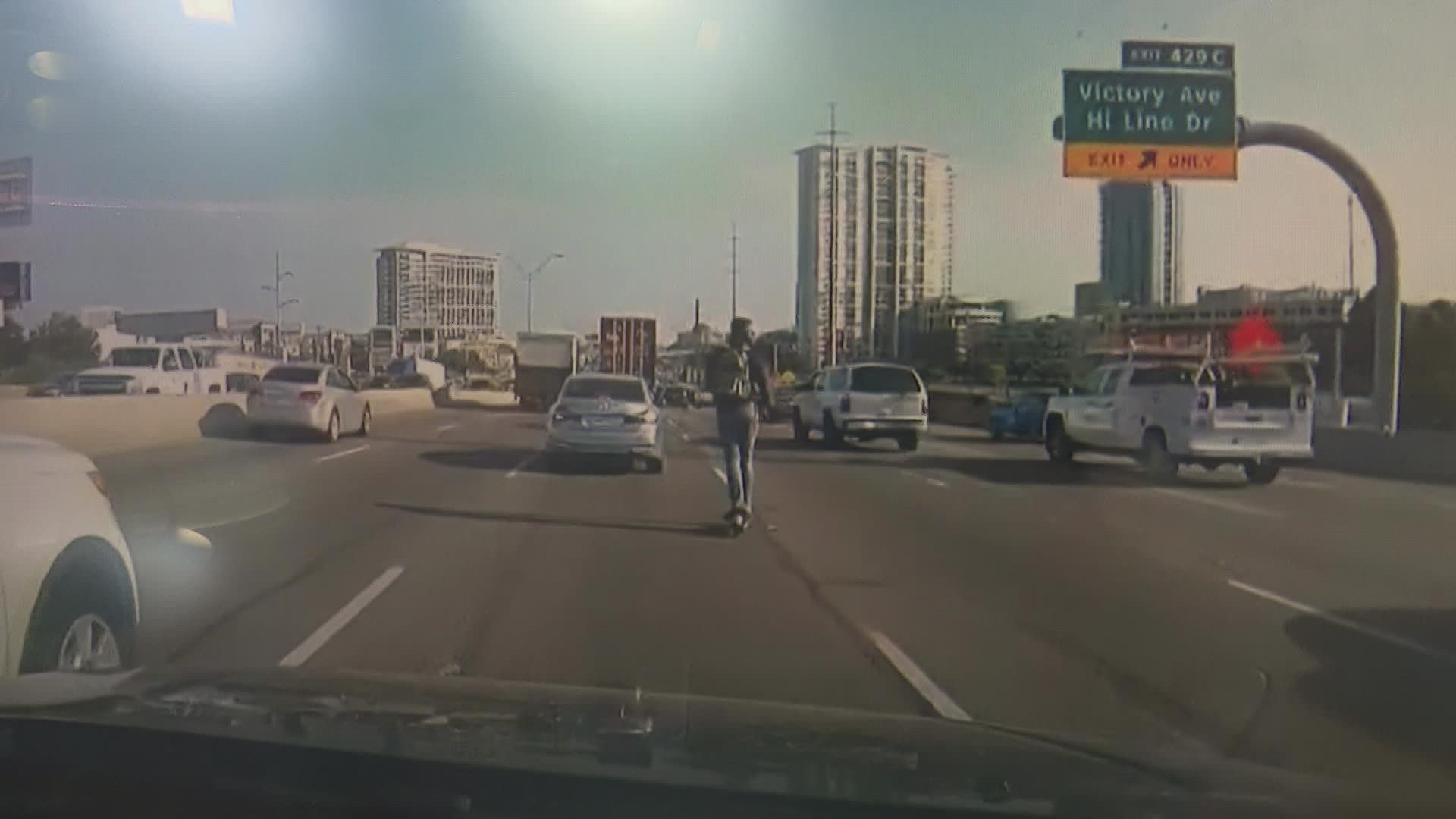DALLAS — Concerns over safety and clutter on streets led to the City of Dallas telling scooter companies to cease operations in September 2020.
But a city council committee is in the early stages of considering regulations that would allow scooters to make a return.
“I’m hoping that before the end of the year we have them back on the street, but if not, then at the beginning of the year,” said Councilman Omar Narvaez, chair of the transportation and infrastructure committee.
When scooters were operational in Dallas, videos went viral showing people riding them in precarious places – like on I-35E during rush hour traffic or on sidewalks, which was not allowed, and slamming into doors.
Pedestrians suffered injuries as did hundreds of riders.
Some were even killed.
When the City told scooter companies to end operations, the pause was supposed to be temporary.
A year and a half later, a return seems imminent.
Narvaez formed a working group comprised of “regular folks” like residents and business owners from across the city and police officers to study scooters.
RELATED: Scooter commuter: Someone thought crossing 5 lanes of I-35 in downtown Dallas was a good idea
The group identified the major issues that plagued the city when scooters were in use and reviewed best practices other cities have put in place.
The transportation committee is now beginning to consider the group’s recommendations.
Suggestions include:
- limiting the number of vendors serving the city to three,
- capping the number of units they can operate,
- requiring scooters to be operational in areas where access to public transportation is difficult,
- limiting the max speed that scooters can travel,
- having set pickup and drop-off locations to prevent scooters from piling up outside businesses,
- using geofencing to create virtual boundaries meaning scooters would not be operational in certain places like sidewalks.
“Businesses spent money on big signs to put up in their windows with like big red letters, no scooters on sidewalks. It’s in every bar’s windows and nobody listened to it,” recalled Gnat Marfisi, a Deep Ellum resident and bartender at a bar on Main St.
She said allowing scooters “just doesn’t work,” in her neighborhood.
Narvaez understand why people feel that way.
“What happened last time is that scooter companies did not follow the guidelines and the rules they helped create,” he said. “That gives a lot of pause for people.”
“We just didn’t regulate well enough the first go around.”
Narvaez said he hopes the transportation committee and full city council will approve a new scooter plan.
And he hopes the city can open a request for proposals, or “RFP,” in August.
Eventually, Narvaez wants scooter companies signed to contracts that could include something like a “three strikes and you’re out” process.
“Maybe you start with 500 scooters, but you didn’t follow the rules so maybe your punishment could be fines or a reduction of your fleet,” he said.
Narvaez sees scooters as a critical tool for people who struggle to get to jobs, school, or to DART’s newly drawn bus routes.
Marfisi understands that but just doesn’t like them.
“Look around,” she said. “We’ve got enough wheel clutter around out here.”

